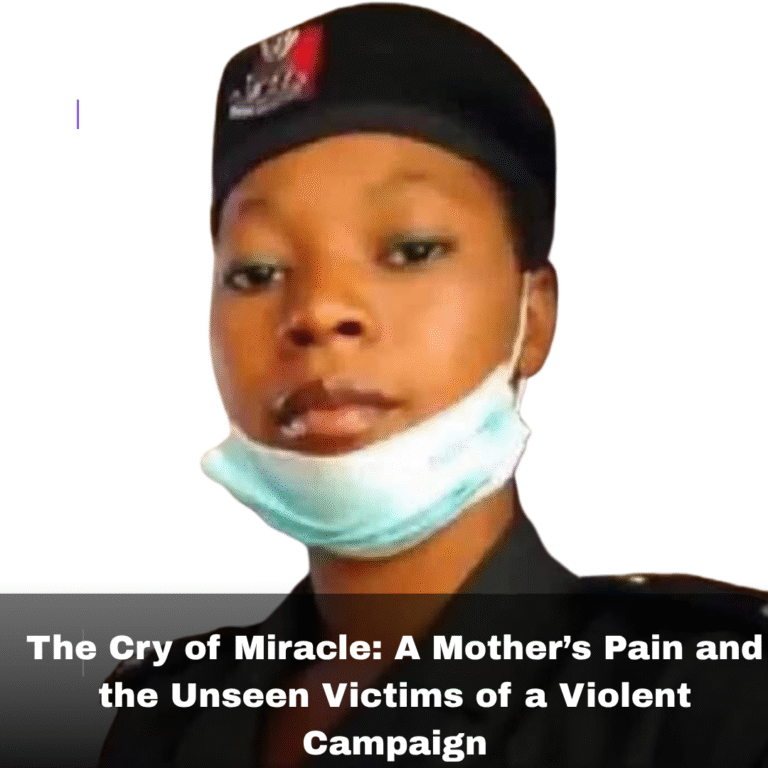When 22-year-old Miracle Nwobodo left her family home in early 2021 to begin a new life as a police officer, hope was all she carried. Her mother, a widow, had watched with pride as her daughter joined the Nigeria Police Force, believing that her hard-won job would ease their struggle after her husband’s death.
But only seven months into her service, that dream ended in tragedy. In March 2021, Miracle was shot dead in Anambra State by gunmen believed to be members of the Eastern Security Network (ESN), an armed group allegedly formed by separatist leader Nnamdi Kanu.
Witnesses recall that Miracle, still in uniform, cried out in her final moments: “Oh God, who will take care of my mother?” Her words, trembling with fear and love, have since echoed as a symbol of the silent pain borne by families whose loved ones fall to violence in Nigeria’s southeast.
Her mother’s grief was unbearable. “She wanted to serve her country,” a neighbor said quietly. “She wanted to build a future, not die for politics.”
The attack came during a wave of targeted assaults on security operatives in the region. On social media, separatist sympathizers framed the killings as acts of “evangelism” against the state, a term that shocked many who had lost relatives serving in the police or army.
For residents of the Southeast, the violence has brought more sorrow than liberation. Communities that once rallied behind the call for self-determination now live in fear, their markets and roads haunted by the memory of those killed in the crossfire.
Three months after Miracle’s death, Nnamdi Kanu was arrested abroad and extradited to Nigeria to face charges related to terrorism and incitement. For families like the Nwobodos, his arrest felt like the faint beginning of justice—but it could never restore what they lost.
“The land of Igbo is angry,” said writer Ikechukwu Emeka Onyia II, who has been vocal about the pain caused by the killings. “The soil is crying for justice for the victims of Kanu and those he inspired. Affliction shall not arise again in Igbo land.”
Today, the small village where Miracle was born lives with her memory. Her mother still keeps her police cap by the window, a silent reminder of a daughter whose life was cut short by a conflict she barely understood.
